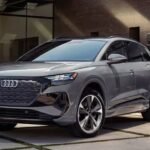BYD (HKG: 1211, OTCMKTS: BYDDY) continues to dominate China’s new energy vehicle (NEV) market, maintaining its position as the largest NEV maker in the country in June. Meanwhile, Tesla (NASDAQ: TSLA) saw an improvement in its ranking compared to the previous month.
In June, BYD’s NEV retail sales reached 352,081 units, marking a 25.7 percent increase year-on-year and a 20.2 percent increase from May. The company secured a 31.7 percent market share in June, up from 28.5 percent in May but slightly below the 32.7 percent recorded in June 2024.
On the other hand, Tesla reported retail sales of 61,484 units in China in June, representing a 3.8 percent year-on-year increase and a significant 59.3 percent surge from May. Despite the positive growth, Tesla ranked fourth in China’s NEV market with a 5.5 percent market share, climbing four spots from eighth place in May.
The share captured by Tesla in June was higher than the 3.8 percent recorded in May but lower than the 6.9 percent achieved in the same period last year. Geely secured the second position in the NEV market in June with 114,798 units sold, marking an 80.7 percent year-on-year increase but a 12.0 percent decrease from May. The company held a 10.3 percent market share in June.
In the first half of the year, BYD led China’s NEV market with 1,610,042 retail sales and a 29.4 percent market share. Geely followed closely behind with 685,788 units sold and a 12.5 percent market share, while Changan Automobile ranked third with 367,521 NEV sales and a 6.7 percent market share. Tesla secured the fifth spot in China’s NEV market for the first half of the year with 263,410 units sold and a 4.8 percent market share.
Overall, BYD ranked first in the passenger vehicle market in June with a 16.9 percent market share, followed by Geely with 9.4 percent and FAW-Volkswagen with 6.9 percent. Tesla held the tenth position in the overall market with a 2.9 percent market share.
The latest data from the China Passenger Car Association (CPCA) indicates that BYD and Geely produce both battery electric vehicles (BEVs) and plug-in hybrid electric vehicles (PHEVs), while Tesla focuses solely on BEVs. This diversity in product offerings contributes to the unique market positioning of each automaker in China’s rapidly evolving NEV landscape.







